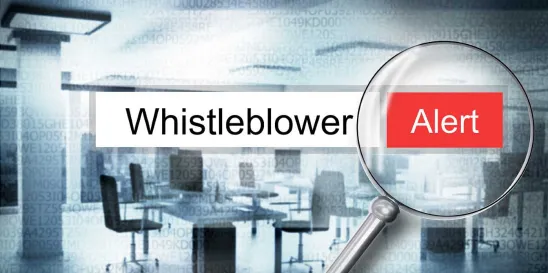On October 10, the Supreme Court heard oral arguments in Murray v. UBS Securities, LLC, a Sarbanes-Oxley Act (SOX) whistleblower retaliation case filed by an ex-employee against UBS Bank. The case, which centers on whether or not whistleblowers must prove that companies acted with “retaliatory intent” to be protected under the law, will have immense implications for a number of whistleblower protection laws.
“The court appeared to be skeptical of UBS’ attempt to ignore the plain meaning of the statute,” says KKC founding partner Stephen M. Kohn. The partners at KKC were actively involved in the drafting of the whistleblower provisions found in SOX.
“What hangs in the balance of this case is whether the Sarbanes-Oxley Act can be used to effectively protect corporate whistleblowers, especially those who raise their concerns internally,” Kohn explains.
In an amicus curiae brief filed on behalf of the National Whistleblower Center (NWC), the partners of KKC outlined the Congressional intent behind the burden of proof standard in SOX.
“In crafting the unique ‘contributing factor’ test for whistleblowers, Congress left an incredibly straight-forward legislative history documenting the value of whistleblowers’ contributions, the risks and retaliation whistleblowers faced, the barriers the previous burden of proof presented for whistleblowers, and Congress’ explicit intention to lower that burden of proof for whistleblowers,” the brief states.
“The United States Court of Appeals for the Second Circuit looked to the provision generally prohibiting retaliation against whistleblowers and took it upon themselves to raise the ‘contributing factor’ burden of proof to require a whistleblower to ‘prove that the employer took the adverse employment action against the whistleblower-employee with retaliatory intent,’” the brief continues. “This interpretation completely negates the purpose of Congress crafting the ‘contributing factor’ standard to lower the burden for whistleblowers and the plain meaning of the mandatory ‘contributing factor’ burden of proof.”
“A ruling in favor of UBS Securities will overturn more than 20 years of precedent in Sarbanes-Oxley Act whistleblower cases and make it exceedingly more difficult for whistleblowers who claim retaliation under many federal whistleblower statutes modeled on SOX,” says David Colapinto, one of KKC’s founding partners.
Geoff Schweller also contributed to this article.




 />i
/>i

